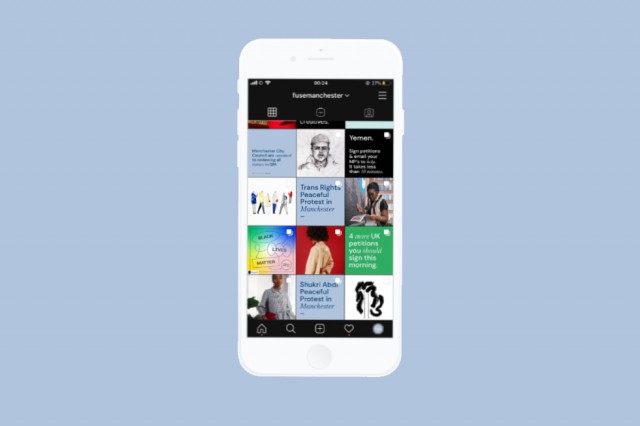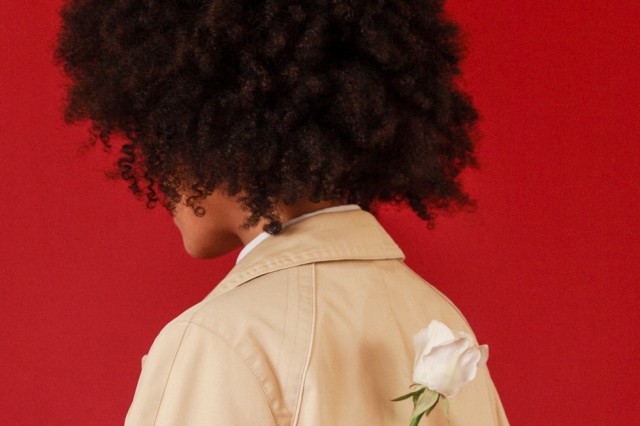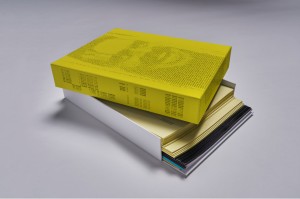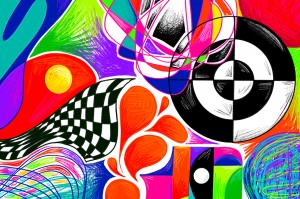“It was a struggle to find someone of colour at the forefront” – Interview: Jaheed Hussain

Jaheed Hussain founded “passion project” Fuse Manchester to encourage a more inclusive creative sector. We caught up with the graphic designer and writer to talk representation, unconscious bias and keeping momentum going…
The Double Negative: Hi Jaheed, tell us about how and why Fuse came about.
Jaheed Hussain: Fuse started due to a lack of representation in Manchester’s creative scene. Within events and during my studies, it became a struggle to find someone of colour at the forefront. I was a student at the time, meaning that the industry surrounding me hugely affected how I would perceive my own belonging, as a graphic designer. I’d received talks from agencies and studios, but would never see someone of colour. I’d received lectures and talks within the university studio, and still would never see someone of colour. As a third-year student, you’d expect the very best to come and share insight, for me and so many other students of colour, it wasn’t the case.
Fuse is still a young organisation – how has the first year or so been?
The first year has largely been progressive. In most cases, those within the smaller community had reached out and said that things need to be better. Since its inception, events have started to diversify, and teaching spaces have sought to create a safe space for those of colour. With the events Fuse has hosted, which I’ll get onto in a second, the network itself has grown massively with thousands now engaging with Fuse’s daily content online, and hundreds signing up to its directory.
Is it an online community only, or – prior to lockdown – would you also meet and have Fuse-themed events?
It’s very much a mix of both. Prior to lockdown, we had hosted events in various spaces around Manchester. The first of which happened, last July – workshopping a manifesto and engaging with important conversations. We also had a panel at Design Manchester’s conference and a week prior to lockdown, hosted a speaker event. With events, featured guests are always of colour, and the audience always continues to be the most diverse it’s ever been. The plan for this year had been to host at least three events, so hopefully, the next will be towards the end of the year if safe to do so.

How has Fuse been received by the wider industry?
Due to lockdown, the platform has reached a massive audience – 80,000 are visiting the site monthly and thousands have started to follow from all over the world. Thankfully, this meant that within the past few weeks, Fuse has expanded to different cities over the world, so in the wider context, people are listening and learning. I think for creatives of colour, it’s been massively important to have had that safe space; to showcase, highlight and dedicate an online platform to work and advocating for world-related movements such as Black Lives Matter.
Is diversity in the sector improving?
Slowly, yes. Although, there needs to be more done for boroughs that may not have the funding necessary to make the arts a viable career for disadvantaged kids. For example, where I live in Oldham, there’s no presence of the arts but in contrast to Manchester, which is half an hour down the road, the arts are accessible everywhere. On the flipside, studios and agencies need to start hiring more people of colour. In Manchester, most agencies are still disappointingly and extremely whitewashed. Companies like LOVE, who have over 40 employees don’t have a single person of colour on their staff page.
What more can and should be done?
A more inclusive hiring process needs to be set within the creative workspaces to drive out any unconscious bias that’s dismantling our industry. It’s tough for those of colour, who graduate from any Arts degree to get a job. With lockdown, it’ll be even tougher now, so let’s do more now, than ever before to ensure those of colour can become creatives and artists.
Your directory showcases all kinds of creatives – tell us how it works.
On the website, people can nominate themselves or others they may know. A quick form integrated on a couple of those pages lets anyone input their names, portfolio/website and a description about their practice and who they are. Alternatively, anyone can email or message Fuse over social media too.

How can people get involved and support the work you’ve begun?
Recently, a ton of people have been engaging with the content on our site and social profiles. Definitely following, engaging, sharing with what’s being posted keeps me going. So far, Fuse isn’t funded and done solely off the back of my own resources – so anyone can choose to donate, or support on Patreon! With Patreon, there’s tiers and benefits for a monthly pledge. You get exclusive content, digital artwork to keep and full access to future events etc.
What are your future plans for Fuse?
Ideally, I’d love to get funding. Long term, it’ll allow me to plan ahead and keep Fuse sustainable. More events, articles, commissions and grants could be viable with the fund and it’ll help support Fuse that much more. I also want to keep this momentum going! Chapters are opening up over the world, and I’d love for more to start. So, if you’re reading and want to get in touch about starting your own local chapter of Fuse, then do so!
As told to Mike Pinnington
Further Reading: GRAD SHOWCASE: Pro Picks – Jaheed Hussain
Contact Fuse: fusedirectory@gmail.com
Follow Fuse on Instagram & Twitter
Photo credit – Joshua Drakes





